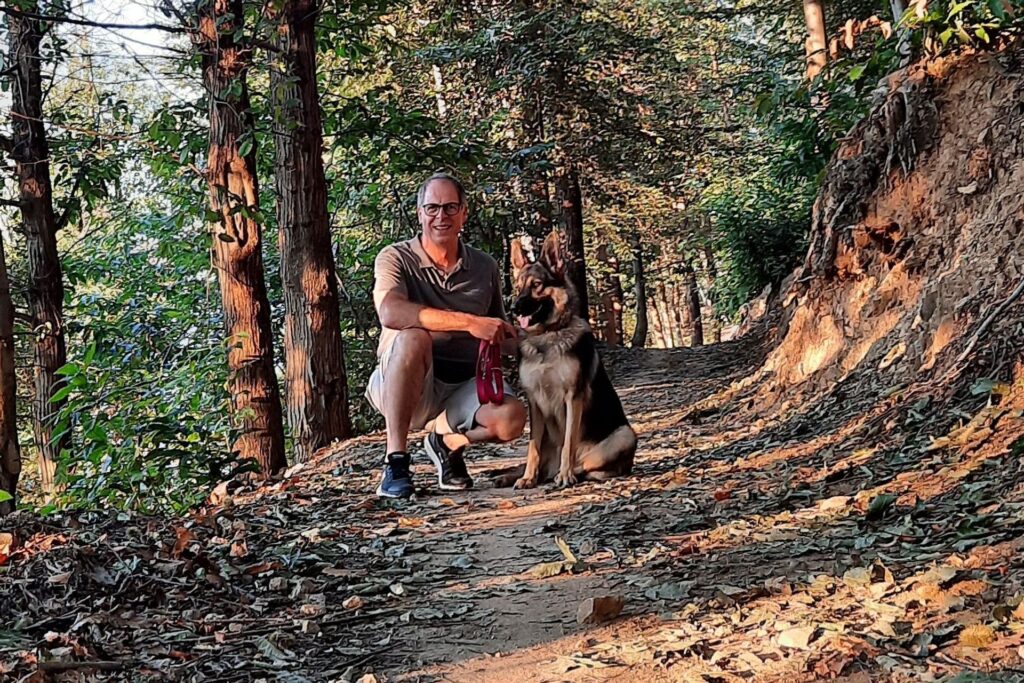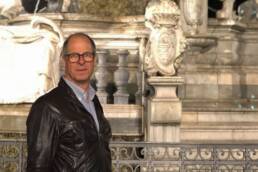Andrea Trevisan: “I’d like our technology used by everyone”
CEO of Prometeo, the Paduan entrepreneur talks about himself, the success of quantum electrodynamic coherence devices and his Region
Andrea Trevisan, a graduate of Ca’ Foscari University in Venice and a recent member of the “Swiss Federalism” association, is a man with a truly rich and solid background, with a purely financial vocation, and is the director and co-founder of one of the most advanced engineering companies in Italy: Prometeo.
Prometeo was founded in Padua in 2003 with the objective of designing and manufacturing equipment using the knowledge of Quantum Electrodynamic Coherence. This reality makes use of numerous interdisciplinary collaborations in the fields of physics, electrochemistry, biology, medicine, veterinary medicine and engineering. Its researchers are known in the scientific world for their discoveries on the behavior of living matter. The fundamentals are contained in numerous articles published in international journals and, they claim, “this technology will have enormous success in the coming years in the fields of medicine and health care, veterinary medicine and agriculture.”
Monica Bravi: “I dream of becoming a serial entrepreneur”
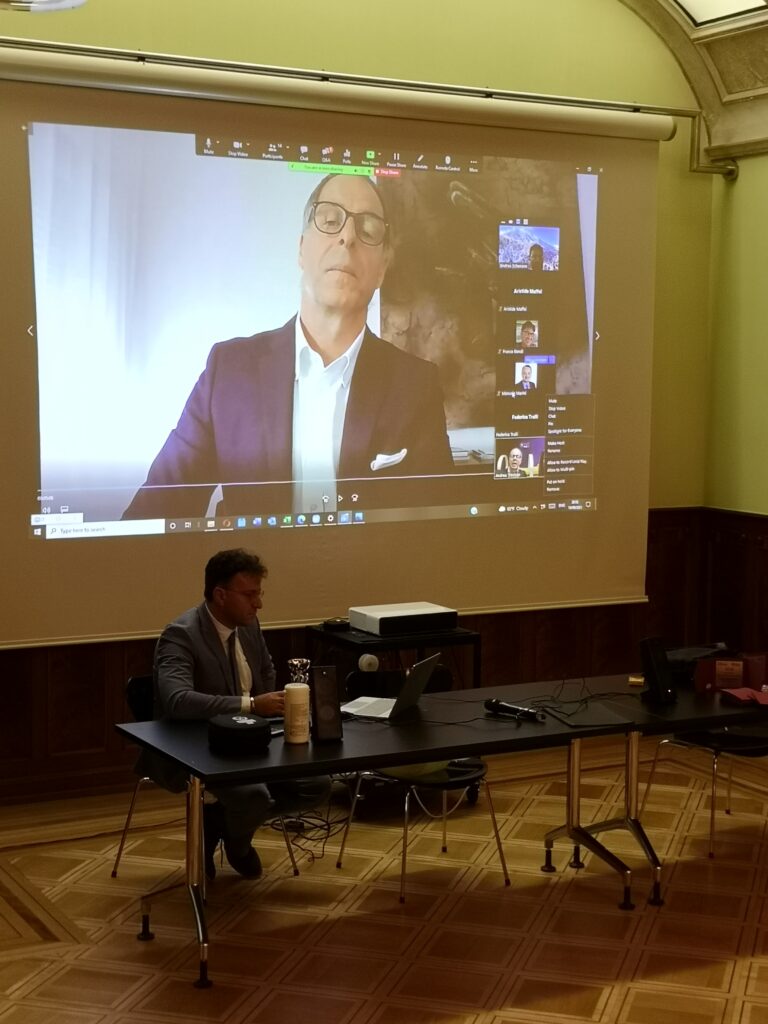
A survey carried out among physicians who have been using Quec Phisis for years shows that 86% consider it a good investment, 93% would recommend it to a friend or colleague, half of those interviewed returned the investment in a period of between 12 and 18 months (12% in just 6 months) and 97% of patients undergoing treatment declared themselves satisfied, of which 60% “very”.
The workhorse is represented by the “QPS1” equipment (CE Notified Body Number 0476) which, according to a recent survey conducted by Prometeo, demonstrates a degree of satisfaction of over 90 percent for both healthcare professionals and patients and people who use it in the medical, wellness, beauty and sports fields.
This type of technology can also be applied in other sectors, in addition to those mentioned above. In fact, the Padua-based company has recently collaborated with a company that produces fertilizers for agro-food use in order to make some fundamental substances more biologically available for plants. The results are very interesting.
It’s worth getting to know Andrea Trevisan better in order to understand the values, mission and vision of his company and the content of the interesting technology that Prometeo brings with it.
Nicola Zanni: “In Zug, if you want and work hard, you get everything”
What is your relationship with Switzerland and why did you decide to join the association Swiss Federalism?
“Since I was a boy I have always appreciated Switzerland and its inhabitants. It is a peaceful and neutral country, with a simpler and more effective legislative structure than the Italian one. Its federalist system allows to manage everything with autonomy and freedom. In addition, I have always had excellent professional relations with Switzerland because its health and medical culture has always been curious about technical innovations and, above all, has always been open to a natural approach to health care and wellness. A doctor friend told me about the Swiss Federalism association, I saw the website, spoke with the president Andrea Schenone, I immediately got in tune with him and I immediately joined the association”.
How would you describe your company? What can you tell us about its development? What are its mission, values and vision?
“Prometeo Srl was established in 2003 as an engineering company to design and manufacture equipment using the knowledge of Quantum Electrodynamic Coherence. It uses many interdisciplinary collaborations in the fields of physics, electrochemistry, biology, medicine, veterinary sciences and engineering. Its researchers are known in the scientific world for their discoveries on the behavior of living matter. The scientific foundations are contained in numerous articles published in international journals. We are convinced that this technology will have enormous success in the coming years in the fields of medicine and wellness, veterinary medicine and agriculture.”
What projects do you have in the pipeline and what do they consist of? Which are the flagship products of your business activities and which are worthy of development?
“The most successful product is the Quec Phisis QPS1 device, which from our recent survey shows a satisfaction rating of over 90 percent for both healthcare professionals and the patients and people who use it, in the medical, wellness, aesthetic and sports fields. We are currently designing a more streamlined and handy biomedical device, useful for home therapeutic support. Quec Phisis technology can also be applied in other sectors. Recently we are collaborating with a fertilizer company for an agro-food use in order to make more biologically available some fundamental substances for plants. The results are very interesting. Obviously stimulating ions in a human being, who weighs on average 60-80 kilograms, is completely different from treating tons of fertilizers, but the theoretical principle of treatment is the same”.
Leo Isolani: “In Switzerland, we do give importance to work”
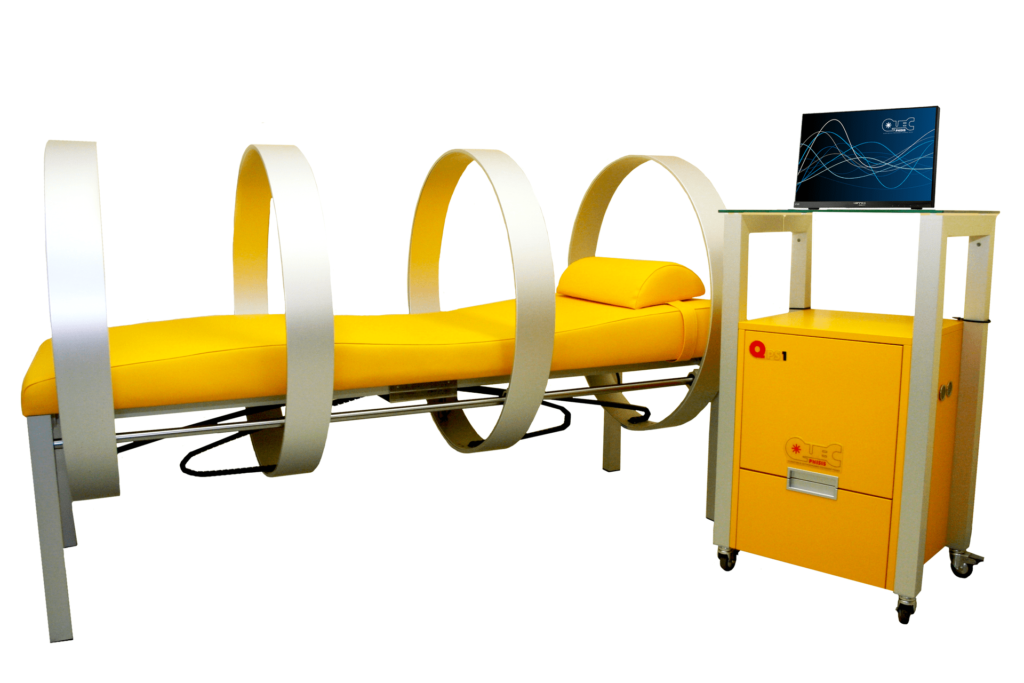
How do you fill your free time? Is there anything you’d like to do that you haven’t had the opportunity to do yet, the famous personal “dream in the drawer”?
“I love my job: producing innovative equipment that will be used by everyone, researching new solutions, unpublished prototypes, talking to people stimulated by the technology we propose, seeing their satisfaction thanks to our device. But when I’m not working I prefer to be outdoors with people I feel good with, doing sports with a group of friends, cycling, skiing, playing volleyball, canoeing, motorbiking through villages and landscapes, walking with my dog. A dream in the drawer? I have two: the first is professional, to see our technology used by everyone. I am absolutely convinced that rebalancing the cellular metabolism helps in a preventive way the natural well-being of people: less stress, less chronic disorders, less latent inflammation that then lead to serious diseases. The second dream is a personal one, to ride a motorcycle to the North Cape, to see the midnight sunrise and nature at its maximum expression; it would take at least three weeks of vacation. Paradoxically, it might be easier to realize the first dream than the second because today I am not able to stay away from my job for more than ten days”.
Swiss Federalism, GCBL and Milton Friedman International Innovative Start-Up/SME Award
What do you expect from your co-workers and friends? What attitudes bother you the most and what attitudes do you appreciate in others? Are you a tolerant person or do you find it difficult to forgive misunderstandings or insults? What “sanctions” or reward mechanisms do you adopt, if any?
“Two words: trust and respect. Trust in the skills and competences of the workforce and respect for the relationships and work of my collaborators. If you have to analyze a problem, a project, an error, two or more heads are certainly more effective than one. But then the decision and responsibility lies with one. What bothers me most is arrogance that is not backed up by a person’s ability and personality, while what I appreciate most is sincerity and honesty in thought and action. I am a tolerant person: I hardly ‘sulk’ and always give a second chance. But the third is very difficult. I have never thought in terms of sanction or reward. I ask my collaborators to commit themselves wholeheartedly in their role to the final result of our reality and our philosophy. The success of a company lies in the work of the entire group.”
What are your biggest regrets and regrets? Is there anything you have regretted doing or, conversely, not doing, in life as well as in your career? Why?
“More than regret or remorse I would speak of regret. In 2003 Prometeo was born, with a lot of enthusiasm of all the researchers and of the undersigned in wanting to realize something that in the market was just sketched: the ionorisonance was patented in 1988 but it didn’t have a commercial development. Moreover, the discovery of coherence domains by the two founding partners, Getullio Talpo and Emilio Del Giudice, gave us an extra gear compared to the traditional way of thinking of the time. We were on the crest of a wave, the whole Prometeo group was strong, motivated and highly productive. In 2006 the Quec Phisis QPS1 device was released on the market. It was an immediate success, the first conferences, contacts with institutions, political figures, etc.. Three months later there was the loss of Getullio, and all the spotlights went off. Shortly afterwards, Emilio also left us. It was very hard, as orphans, to keep alive a project so innovative and ambitious. Now it is easier to talk about ionresonance and coherence domains of water. My greatest regret is just not being able to give this satisfaction to Talpo and Del Giudice who have dedicated all their knowledge to a device without being able to enjoy the right recognition, at least in life”.
Andreas Voigt: “In Appenzell the best of Emilia and Germany”
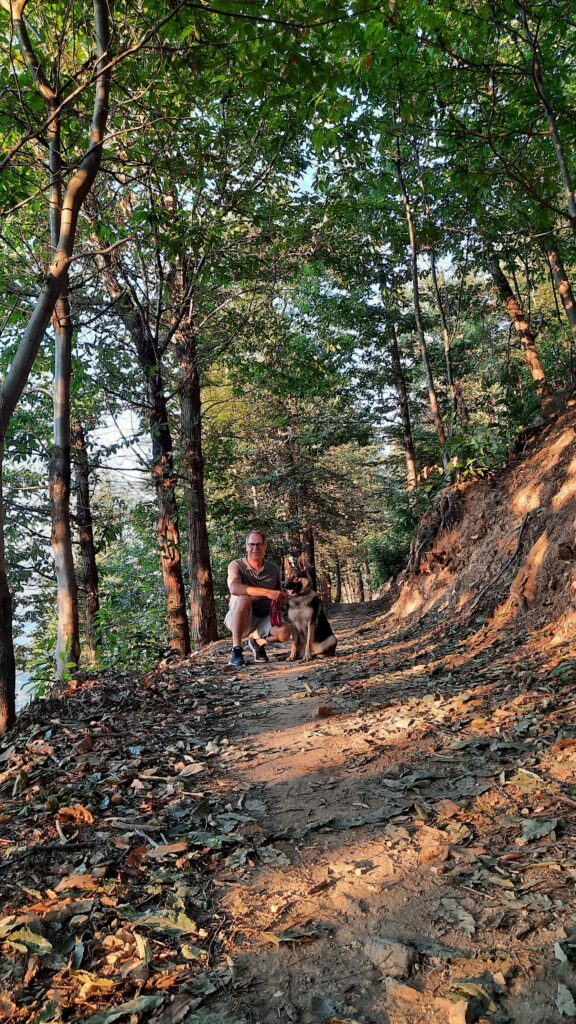
“What was your experience like as a finalist for the International Award for Innovative Start-Ups/SMEs “Swiss Federalism, GCBL and Milton Friedman”, whose awards were presented in Zurich on September 18, 2021?
“Electrifying: during the awards ceremony on September 18, I was getting more and more excited to see that the list of participants was getting thinner and our project had not yet been called. Finally, we came in second on the wire: having the congratulations of President Andrea Schenone was a great satisfaction. In a few moments, all the sacrifices made to keep this project alive went by me: it was a great gratification to have international recognition”.
How do you see the evolution of the biomedical cyclotron ion resonance machine market in the coming years? What are the relationships with competitors?
“Prometeo offers to the health and wellness market a technology where competition is practically non-existent, with less performing devices than the Quec Phisis. It is currently a small company and the devices are handcrafted products with low volumes. With adequate resources there is a very high potential for growth and development in multiple fields, both nationally and internationally”.
How important was for you the personal acquaintance of the two scientists who invented the machine, who unfortunately died prematurely? Could you tell us some anecdotes?
“Our two scientists Getullio Talpo and Emilio Del Giudice, creators of QPS1, were first of all two friends. Our relationships were characterized by a union of almost brotherhood, in which we interacted and collaborated together, without any prevarication. I am very nostalgic for those times. They were ‘resonant’ moments full of curiosity, ideas and experiences. Among these, I remember that, on our way home after a dinner in a trattoria in Polesine, we found a wall of fog. In the car I was with Emilio Del Giudice, Getullio Talpo and Abraham Liboff, father of Cyclotron Ionorisonance, all three of us very worried by this white nothingness surrounding us. To ease the tension, I turned on the radio and Getullio started humming the song that was being broadcast. He was followed by a Neapolitan song by Emilio and, to everyone’s surprise, Professor Liboff, out of tune, paid homage to us with a song he had never heard before. We ended the comeback with the radio off, with a tune that everyone sang: ‘Volare oh oh oh’…”.
Valeria Cattaneo: “Me in Lugano? A… marble dreamer!”
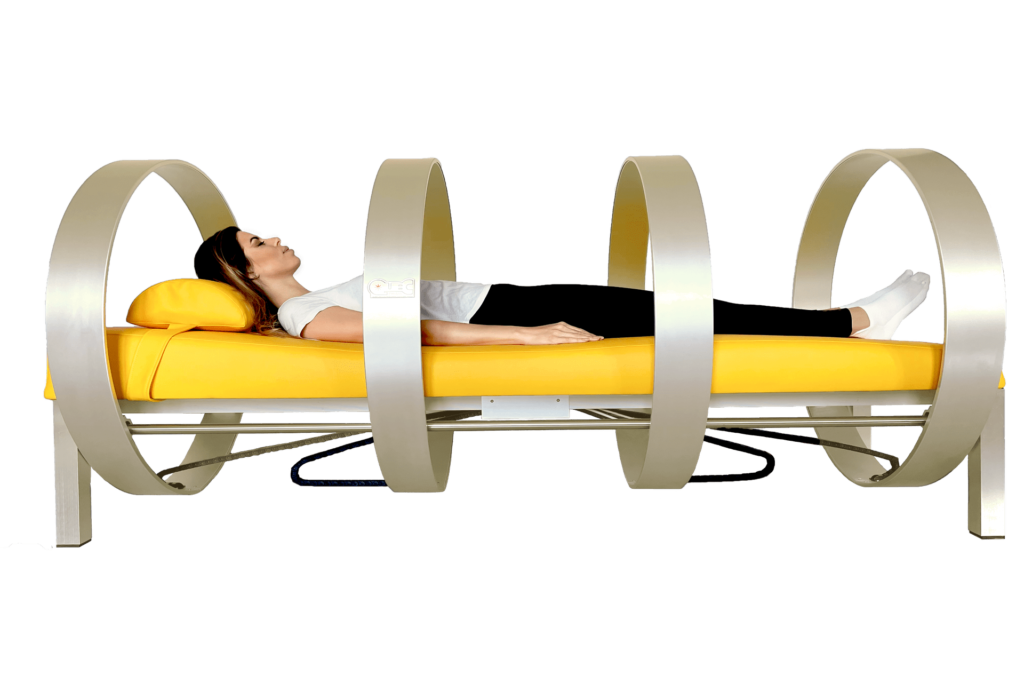
The Veneto has always boasted a strong autonomous propensity, also the result of nine hundred years of independence and history of the Serenissima Republic of Venice. Some of its provinces, as well as some of the neighboring Lombardy and Emilia-Romagna, record a GDP higher than that of some European countries, such as Greece. How do you see the future of your region and what economic and political challenges will it face in the years to come?
“The history of the Venetian Republic fascinates me, I love my region and I am proud to be from Veneto. In our DNA there is everything that has made the Serenissima, for eleven centuries, an economic and artistic power in the world: independence, autonomy, determination, resilience, research and perseverance, maximum commitment to action. A few examples: it was the first state in the world to abolish the slave trade, officially in the sixteenth century, the Constitution and the U.S. justice was based on the laws of the Serenissima (Benjamin Franklin stayed in Venice for almost a year), St. Petersburg was built by two Venetian architects, Venice invented the first lazaretto in history (1423), then imitated throughout Europe, created the Magistrate of Health (1586) that monitored the Mediterranean to identify outbreaks of plague and stem the epidemics. Thanks to these measures, the plague, after 1630, did not return to Venice, while it continued to rage in other ports until the end of the 800. The Venetian State guaranteed an extraordinarily effective, stable and synergic administration. Against the principles of the time where only the Pope or the Emperors and Kings could confer nobility and feudal titles, the Venetian aristocracy was self-elected, the patricians (Nobilis Homo) were all equal in the management of public affairs. Venice belonged to no one except itself. Even in religion: even if it was very Christian, the Republic had as its religious head the Doge, vicar of Saint Mark on earth. The Pope is respected, but he is still an antagonist, a ‘long-handed prince’. But let’s come to the last decades, where, in Italy and in the world, we Venetians are considered, together with the entire Northeast, the locomotive of Italy. Starting from the end of the Second World War, Italy became the seventh industrial power in the world; in the last thirty years, the Northeast area has seen the birth, in tiny villages, of warehouses where fathers and sons produced the GDP of a European state by themselves. Then, like a modern plague, came the great crisis. Sometimes we are laughed at because we are told that we are home-work-family. But for me this philosophy of life is a source of satisfaction and pride. I love my job and I try to do it well, I try to build something for the people who appreciate me for what I do, for my family, and for my future grandchildren. What we lack, in the face of a net positive response from the 2017 Veneto advisory referendum, are additional forms and conditions of autonomy. It is essential to find an agreement between the Government and the Region for a law that dictates forms and conditions of autonomy for all the subjects provided by our Constitution. This autonomy bill is copied by other Italian regions, both in the North of the country and in the South indistinctly from the political color. Let’s try to have a stronger Veneto, not a selfish one. We Venetians do not want to put on our heads the customs horn, the Doge’s hat, but we want to have competencies and functions attributed exclusively to our region. Surely this is the future political and economic challenge of Veneto”.
Veneto candidate to host the EU “anti-coronavirus” Authority
The agreements between Italy and Emilia-Romagna, Lombardy and Veneto
Differentiated regionalism? A compelling thesis
